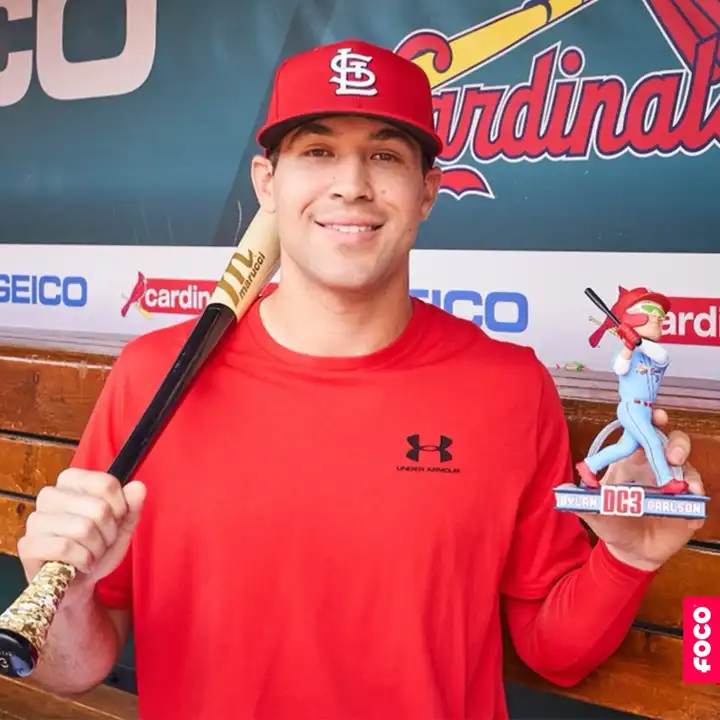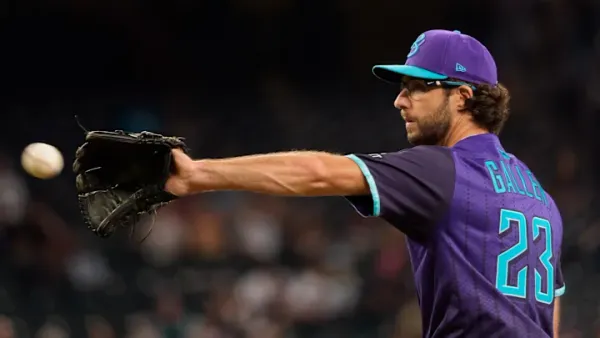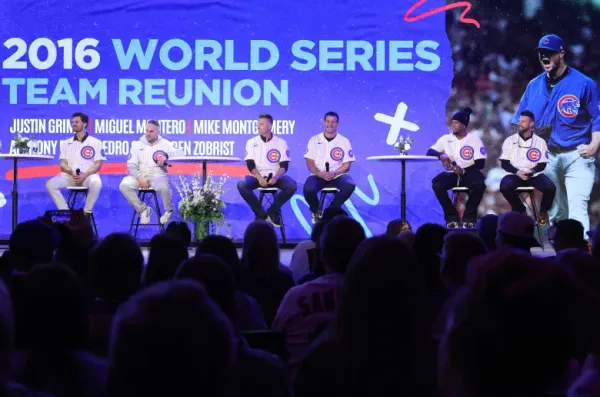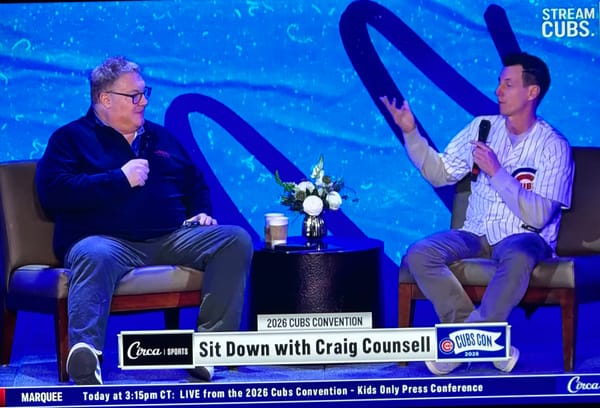Don't worry. Jed's got this.
When has he ever let us down?
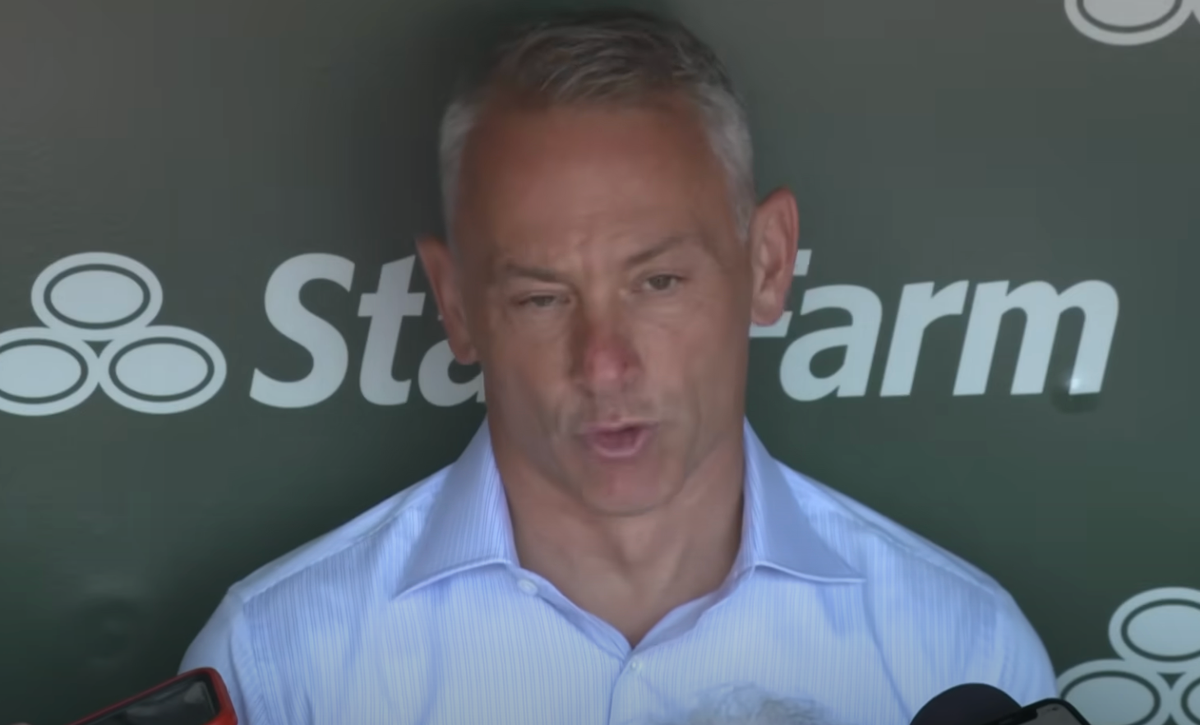

The MLB trade deadline is just ten days away. Thoughts of the Cubs pulling off an early trade to get the jump on the competition and get a little extra value from their acquisitions have been thrown on the ash heap (I hope they didn't hit Nate Pearson or Luke Little when they landed) are long gone. But they are not alone. It's not like there has been a flurry of moves and the Cubs have been standing around with their fingers up their butts. Well, maybe Carter, but not the rest of them.
On Friday, lil' Jed Hoyer popped up on the dugout bench--as his his wont the first game of a home stand--to talk with the Cubs beat reporters.
And, he appeared to try to tamp down expectations of the "haul" the Cubs are able or willing to bring in to bolster an already good team.
He could have been playing it cool, hoping to surprise everyone with a big move.
He could have been reacting to the industry-wide feel that there are too many teams who think they are either in a playoff race, or close enough that they are afraid to tell their fanbase they actually suck, and maybe the trade market is pretty bleh.
Option one is much more fun than option two.
There is the reality that the extra wild card spot has fucked up the entertainment value of the trade deadline. In fact, every time the league has added a playoff spot (from two division winners, to three division winners and a wild card, to three division winners and two wild cards, to the current three division winners and three wild cards) it has blurred the line more and more between contenders and pretenders.
When they added the third wild card in 2022, they should have moved the trade deadline back from July 31 to August 15, for just that reason. Two more weeks of games would make it clearer who is really in the hunt and who isn't. Especially when they got rid of the August waiver trade period. Now, not only can't you make a regular trade after July 31, you have no way to acquiring a player to replace someone who gets injured.
Most August trade acquisitions ended up being merely depth pieces, but once and a while some old, washed up fucker would get hot for six or seven weeks and make a real difference, like Gary Gaetti for the 1998 Cubs, or Larry Walker for the 2004 Cardinals, or Justin Verlander for the 2017 Astros (Verlander was so washed up that he won TWO Cy Youngs after his waiver trade).
I don't know why baseball got rid of the waiver trades, and they should bring them back. It was fun to have names leak out of what players made it through waivers (and some of the players would get pissed when they found out that nobody claimed them--which might be why the Players Association pushed to get rid of it in the first place), or we'd find out a team claimed a player and they were trying to work out a deal before the original team pulled the player back. And, sometimes a team would claim a player to block another team from being able to claim him and trade for him, only to have the claiming team say, "you can have him!"
Two famous examples of that were Randy Myers in 1998 when the Blue Jays tried to get him through revocable waivers and the Padres swooped in to keep him from going to the Dodgers, only to have the Blue Jays laugh and tell the Padres that Myers was theirs, and not just for the remainder of 1998 but also 1999 when the then 37 year old was due $7 million. Whoops. Myers pitched for the Padres in the 1998 NLCS and World Series and was bad in both. Then hurt himself and collected his 1999 money while coaching women's community college basketball in Vancouver, Washington. (Randy always was pretty cool.)
I honestly think the GMs wanted it to go away because they were tried of explaining it to their neighbors.
Jed's neighbor Roger: Hey, Jed, thanks for letting me borrow your leaf blower. Before you go back in the house, I hear you can still make deals after the deadline?
Jed: Yeah. You have to put any player on your 40 man roster that you'd like to still be able to trade on what's called revocable waivers.
Roger: Revocable?
Jed: Every team in the league gets a chance to claim the player. If a team does, we can revoke the waiver and keep the player, but we can't try to put him on waivers again for the rest of the season so we can't trade him.
Roger: Why wouldn't you just claim every good player any team tries to get through waivers?
Jed: Most guys do get claimed. Some get claimed by teams who want to try to trade for him, some get claimed because a team doesn't want him to get past them and have a competitor claim him and then trade for him.
Roger: So there's no risk? Why not just claim everybody?
Jed: Because there is a risk. If you claim a player and the original team is happy to have a chance to get rid of him, they don't revoke the waiver and you just get him, and his contract. So if he's owed money for the next year or two or five, you got him and you have to pay all his money.
Roger: What about...
Jed: Roger. Just keep the fucking leaf blower.
The other notable claim also involved the Blue Jays. In 2009 they had buyer's remorse in the middle of a $70 million contract they had given outfielder Alex Rios.

